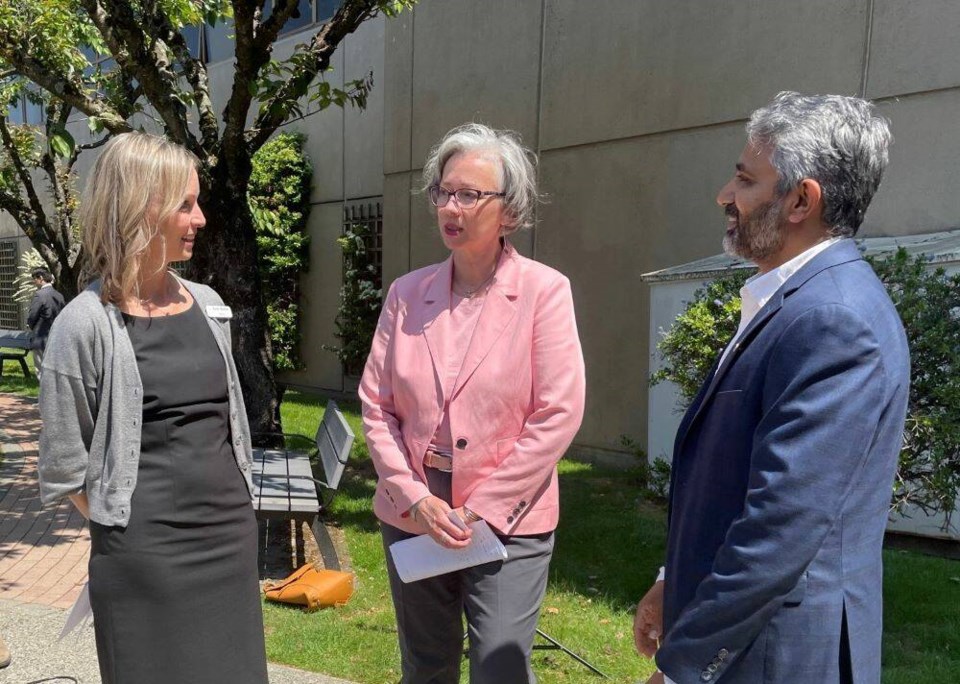Brain injuries from overdoses and extended substance use is an “emerging and concerning condition,” Jennifer Whiteside, Minister of Mental Health and Addictions, said on Tuesday at Richmond Hospital while announcing a program to support people with such injuries.
In fact, while there’s no “absolute data,” medical literature shows up to 40 per cent of people who have had overdoses could have some brain injury, explained Richmond Hospital psychiatrist Dr. Ashok Krishnamoorthy.
As such, the Richmond Hospital launched a program in November to help people with substance use-related brain injuries manage their day-to-day lives, get organized and set goals for themselves.
The Cognitive Assessment & Rehabilitation for Substance Use (CARSU) is the first such program in Canada, modelled after similar programs in the U.K., Whiteside explained, adding it’s being monitored closely.
“(We’re) really excited about the possibilities to scale this up to other health-care facilities (and) other communities,” Whiteside said.
“We are seeing in the context of the toxic drug crisis and with the level of toxicity that we’re seeing in the drug supply, in the illicit drug supply right now, there is increasing concern about the impacts of overdose,” she added.
People with mild to moderate brain injuries can self-refer to the program, or they can be referred by their families or health-care providers.
The province is spending $1.2 million on the program, which is based at Richmond Hospital but available to anyone in Vancouver Coastal Health (VCH).
A multi-disciplinary team of neuropsychiatrists, occupational therapists, social workers, addictions specialists and others work with clients for about six months.
“Working together, we actually help the individuals identify their own goals and they can be really practical,” explained Karen Barclay, director of Mental Health & Substance Abuse at VCH, for example, getting help to go to a treatment program.
So far, about 40 people have taken part in the program, and Barclay said feedback has been “amazing.”
“There is a lot of hope related with learning about your brain and being able to fine tune the aspects that are related to our thinking, like memory, decision-making, planning, coordinating your day, evaluating your risk,” Barclay said.
Furthermore, Vancouver Coastal Health is putting $30,000 into an 18-month research project – starting in July – to look at the outcomes of the program.
While the program is located at Richmond Hospital, it is available to anyone in Vancouver Coastal Health.
People who think they might have a brain injury because of substance use – whether from an overdose or extended use of drugs or alcohol – can self-refer to the program.
Anyone who wants to self-refer or who would like to refer a family member to the CARSU program can call 604-204-1111.



